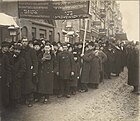
The Bolsheviks, led by Vladimir Lenin, were a far-left faction of the Marxist Russian Social Democratic Labour Party (RSDLP) which split with the Mensheviks at the Second Party Congress in 1903. The Bolshevik party, formally established in 1912, seized power in Russia in the October Revolution of 1917, and was later renamed the Russian Communist Party, All-Union Communist Party, and Communist Party of the Soviet Union. The party's ideology, based on Leninist and later Marxist–Leninist principles, is known as Bolshevism.
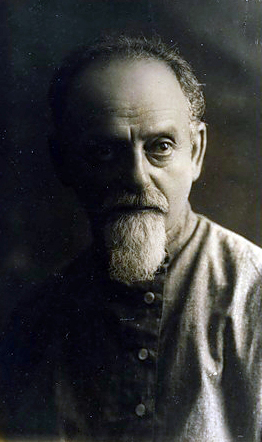
Mikhail Isaakovich Liber, sometimes known as Mark Liber, was a leader of the General Jewish Workers' Union. He also played a role in the Russian Social-Democratic Workers' Party (RSDRP) and was a leading figure among the Mensheviks. Liber was instrumental in the soviets during the February Revolution of 1917 but opposed to October Revolution. He was reportedly shot during the Purges. Liber played a defining role in the development of the Bund and helped shaped the policies of the leaders of the February Revolution.
In the course of the history of the Russian Social Democratic Labour Party (RSDLP between 1898 and 1918), several political factions developed, as well as the major split between the Bolsheviks and the Mensheviks.
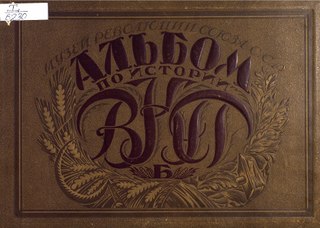
The Fourth (Unity) Congress of the Russian Social Democratic Labour Party took place in the (old) Folkets hus in Stockholm, Sweden, from 23 April to 8 May 1906. This Congress seen the formal, albeit short-living, reconciliation between the Bolshevik and Menshevik factions, hence the word "Unity" in the Congress' name.

The General Jewish Labour Bund in Romania was a Jewish socialist party in Romania, adhering to the political line of the General Jewish Labour Bund. Founded in 1922, shortly after the establishment of Greater Romania, it united Jewish socialists in Bukovina, Bessarabia and the Romanian Old Kingdom. Standing for the lay wing of the Jewish representative movement, the Romanian Bund had atheistic leanings and offered an alternative to the mainstream Jewish organization. Like other Bundist groups, but unlike the Marxist-inspired Poale Zion bodies of Bessarabia, it rejected Zionism.

The Jewish Social Democratic Association Bund was a Jewish socialist organization in Bukovina, named after the Russian General Jewish Labour Bund.

Vladimir Davidovich Medem, né Grinberg, was a Russian Jewish politician and ideologue of the Jewish Labour Bund. The Medem Library in Paris, the largest European Yiddish institution, bears his name.

The "Bund" in Latvia was a Jewish socialist party in Latvia between the two World Wars, adhering to the political line of the General Jewish Labour Bund.

The General Jewish Labour Bund in Poland was a Jewish socialist party in Poland which promoted the political, cultural and social autonomy of Jewish workers, sought to combat antisemitism and was generally opposed to Zionism.

The 5th (London) Congress of the Russian Social Democratic Labour Party was held in London between May 13 and June 1, 1907. The 5th Congress had the largest attendance of the Congresses of the unified RSDLP. Thirty-five sessions of the Congress were held in the Brotherhood Church in Hackney, during which stormy debates took place.
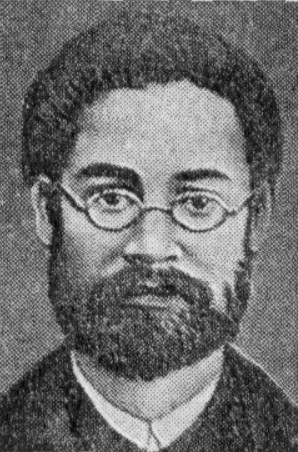
Arkadi Kremer was a Russian socialist leader known as the 'Father of the Bund'. This organisation was instrumental in the development of Russian Marxism, the Jewish labour movement and Jewish nationalism.

The International Jewish Labor Bund (ILJB) was a New York-based international Jewish socialist organization, based on the legacy of the General Jewish Labour Bund founded in the Russian empire in 1897 and the Polish Bund that was active in the interwar years. The IJLB is composed by local Bundist groups around the world and was originally created to defend Jewish national-cultural rights in Eastern Europe. It was an "associated organization" of the Socialist International, similar in status to the World Labour Zionist Movement or the International League of Religious Socialists. Bundist ideology differed significantly from Zionist beliefs regarding the Yiddish language and the immigration of Jews. In the mid-2000s, The World Coordinating Committee of the Jewish Labor Bund was dissolved in New York, although local Bundist groups or groups inspired by the Jewish Labor Bund still exist in Mexico and Australia.

Bundism was a secular Jewish socialist movement whose first organizational manifestation was the General Jewish Labour Bund in Lithuania, Belarus, Poland, and Russia, founded in the Russian Empire in 1897.
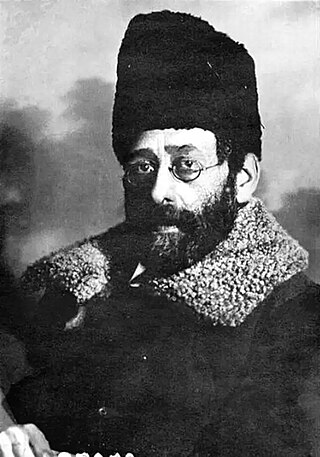
Yuliy Osipovich Tsederbaum, better known as Julius Martov, was a Russian revolutionary, politician, and the leader of the Mensheviks, a faction of the Russian Social Democratic Labour Party (RSDLP). A close associate of Vladimir Lenin prior to 1903, Martov broke with him following the RSDLP's ideological schism, after which Lenin led the opposing faction, the Bolsheviks.

The 2nd Congress of the Russian Social Democratic Labour Party was held from July 30 to August 23 1903, starting in Brussels, Belgium and ending in London, England. Probably as a result of diplomatic pressure from the Russian Embassy, Belgian police had forced the delegates to leave the country on August 6. The congress finalized the creation of the Marxist party in Russia proclaimed at the 1st Congress of the RSDLP. This congress brought the first split within the party, between the Bolshevik faction led by Lenin, and the Menshevik faction led by Martov.

The Russian Social Democratic Labour Party (RSDLP), also known as the Russian Social Democratic Workers' Party or as the Russian Social Democratic Party, was a socialist political party founded in 1898 in Minsk.

The General Jewish Labour Bund in Lithuania, Poland and Russia, generally called The Bund or the Jewish Labour Bund, was a secular Jewish socialist party initially formed in the Russian Empire and active between 1897 and 1920. In 1917, the Bund organizations in Poland seceded from the Russian Bund and created a new Polish General Jewish Labour Bund which continued to operate in Poland in the years between the two world wars. The majority faction of the Russian Bund was dissolved in 1921 and incorporated into the Communist Party. Other remnants of the Bund endured in various countries. A member of the Bund was called a Bundist.

The 1st Congress of the RSDLP was held between 13 March – 15 March 1898 in Minsk, Russian Empire in secrecy. The venue was a house belonging to Rumyantsev, a railway worker on the outskirts of Minsk. The cover story was that they were celebrating the nameday of Rumyantsev's wife. A stove was kept burning in the next room in case secret papers had to be burnt.
The Armenian Social-Democratic Labour Organization, often pejoratively referred to as the Specificists, was an Armenian Marxist organization in the Russian Empire.
